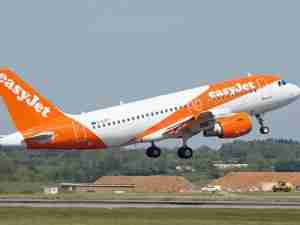Among Turkish blue chips, there’s no stock that’s had a better 12 months than Turkish Airlines. Now the surge is making some money managers nervous, even if they can find reasons to justify the move.
The shares of Turk Hava Yollari AO, as Turkey’s flag carrier is officially known, rose 208 percent over the past year, the most among stocks on the Borsa Istanbul 30 Index, which tracks the nation’s largest listed companies.
An improvement in tourism, easing tensions with major partners including Russia, passenger growth, increased foreign inflows to Turkish equities and a weaker lira all supported the carrier’s earnings in 2017. The shares had been battered by a disastrous year earlier that saw a coup attempt, bombings, and a consequent tourism crisis. Turkish Airlines passengers rose 9.3 percent in 2017, while arrivals to Turkey climbed 28 percent.
That means that the high-performance rally is “in fact a justified one,” said Burak Isyar, head of research at ICBC Turkey Yatirim in Istanbul. But some analyst expectations and prospects may be “over-hyped,” he said.
Julian Rimmer, a London-based emerging-markets trader at Investec, agrees: “valuations are no longer screamingly cheap,” he said.
“We might have approached the level of irrational exuberance with the stock, given the recent volatile nature of Turkey’s diplomatic relations, to which tourism is very susceptible,” Rimmer said, referring to disputes with members of the European Union, the U.S. and Russia, which have weighed on the tourism industry.
The upward move comes against the backdrop of a Turkish military incursion into Syria that’s left Turkey and the U.S., NATO’s two largest armies, facing off on opposite sides of a complex and narrow battleground. That means geopolitical tensions remain a significant risk for investors, especially given the carrier’s “very cyclical business,” according to Haydar Acun, a fund manager at Istanbul-based Marmara Capital.
Turkish Airlines trades at 10.4 times its estimated earnings over one year. While that’s below the global average of 19.5 times, it’s above the multiples for Turkey’s Borsa Istanbul 100 Index, at 8.3 times, and the stock’s five-year average of 8.1. The 50-day moving average on the stock’s trading volume climbed to an all-time high at the end of November, and its 90-day realized volatility soared to a four-year high in January.
For Acun, the move in Turkish Airlines shares rings alarm bells reminiscent of the surge late last year in defense equipment producer Aselsan Elektronik Sanayi & Ticaret AS, which gained 230 percent to briefly become Turkey’s largest company by market value before slipping back. It’s now Turkey’s seventh most valuable company, compared with Turkish Airlines, which is 10th.










